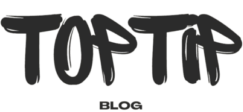As a homeowner, protecting your investment is paramount. Home insurance is a crucial part of this protection, offering financial security against unexpected events. This article delves into the essentials of home insurance, ensuring you understand the various aspects and can make informed decisions.
What is Home Insurance?
Home insurance, also known as homeowner’s insurance, is a policy that provides coverage for damage or loss to your home and belongings. It also offers liability protection against accidents that occur on your property. Essentially, it’s a safety net that helps you recover financially from damages caused by various perils.
Types of Home Insurance Policies
Understanding the different types of home insurance policies can help you choose the one that best suits your needs:
Basic Form
Covers a limited number of perils like fire, lightning, windstorm, and theft.
Broad Form
Provides more extensive coverage than the basic form, including additional perils like falling objects and water damage from plumbing.
Special Form
The most common type, covering all perils except those explicitly excluded in the policy.
Tenant’s Form
Designed for renters, covering personal belongings and liability but not the building itself.
Comprehensive Form
Offers the highest level of coverage, protecting against all perils unless specifically excluded.
Condominium Form
Tailored for condo owners, covering personal property, liability, and sometimes improvements made to the unit.
Mobile Home Form
Covers mobile homes, similar to the coverage for standard homes but tailored to the specific needs of mobile home owners.
Key Components of a Home Insurance Policy
A typical home insurance policy includes several crucial components:
Dwelling Coverage
Protects the structure of your home, including walls, roof, and built-in appliances.
Other Structures Coverage
Covers structures not attached to your home, such as garages, sheds, and fences.
Personal Property Coverage
Covers your personal belongings, from furniture to electronics, whether they are damaged or stolen.
Loss of Use Coverage
Pays for additional living expenses if you need to live elsewhere temporarily due to covered damage.
Personal Liability Coverage
Provides protection if someone is injured on your property and you are found liable.
Medical Payments Coverage
Covers medical expenses for guests injured on your property, regardless of fault.
Factors Affecting Home Insurance Premiums
Several factors influence the cost of your home insurance premiums:
Location
Homes in areas prone to natural disasters or high crime rates typically have higher premiums.
Home Value and Reconstruction Cost
The cost to rebuild your home directly affects your premiums.
Coverage Amount and Deductibles
Higher coverage limits and lower deductibles result in higher premiums.
Home Age and Condition
Older homes or those in poor condition may cost more to insure.
Security Features
Homes with security systems, smoke detectors, and other safety features often qualify for discounts.
Common Exclusions in Home Insurance
Home insurance policies often exclude certain types of damage:
Floods
Flood damage is typically not covered and requires separate flood insurance.
Earthquakes
Like floods, earthquake damage usually requires separate coverage.
Maintenance Issues
Damage from neglect or poor maintenance is generally not covered.
Intentional Damage
Damage caused intentionally by the homeowner is not covered.
Government Action
Damage due to government actions, such as property confiscation, is excluded.
Understanding Policy Limits and Deductibles
Policy Limits
The maximum amount your insurance company will pay for a covered loss.
Deductibles
The amount you pay out of pocket before your insurance kicks in. Choosing a higher deductible can lower your premium but increases your out-of-pocket costs in case of a claim.
Choosing the Right Deductible
Balance affordability with risk when selecting a deductible. A higher deductible means lower premiums but higher costs if you file a claim.
The Claims Process
Reporting a Claim
Notify your insurance company as soon as possible after a loss.
Claims Adjustment
An adjuster assesses the damage to determine the payout.
Settlement Process
Once the claim is approved, you receive payment based on your policy’s coverage and limits.
Tips for Lowering Home Insurance Premiums
Increasing Deductibles
Opting for a higher deductible can significantly reduce your premium.
Bundling Policies
Combine your home and auto insurance with the same provider for discounts.
Improving Home Security
Install security systems and smoke detectors to qualify for discounts.
Maintaining a Good Credit Score
A higher credit score can lead to lower premiums.
Regularly Reviewing and Updating Policy
Ensure your coverage keeps pace with inflation and home improvements.
Importance of Reviewing Your Policy Annually
Keeping Up with Changes
Life changes, home improvements, and inflation can affect your coverage needs.
Ensuring Adequate Coverage
Regular reviews help ensure you are not underinsured or overpaying for unnecessary coverage.
Riders and Endorsements
Definition and Purpose
Additional coverage options that can be added to your policy for specific needs.
Common Riders
Examples include jewelry, art, and home office equipment coverage.
Shopping for Home Insurance
Comparing Quotes
Get multiple quotes to find the best rate and coverage.
Understanding Policy Details
Read the fine print to understand what is covered and what is excluded.
Working with an Insurance Agent
An agent can help navigate the complexities of insurance policies and find the best fit for your needs.
Understanding the Fine Print
Terms and Conditions
Every policy has terms that dictate coverage specifics.
Exclusions and Limits
Know what is not covered and the maximum amounts your policy will pay.
Impact of Natural Disasters on Home Insurance
Hurricanes
Coastal areas may have higher premiums or require separate hurricane coverage.
Tornadoes
Policies in tornado-prone areas may have higher premiums or special deductibles.
Wildfires
Homes in wildfire zones may face higher premiums or need separate wildfire insurance.
Conclusion
Understanding home insurance is crucial for protecting your home and financial well-being. By knowing the types of policies, coverage options, and factors affecting premiums, you can make informed decisions and ensure your home is adequately protected.
FAQs
What is the difference between market value and replacement cost?
Market value is the current selling price of your home, while replacement cost is the expense to rebuild your home from scratch.
How often should I review my home insurance policy?
It’s recommended to review your policy annually or whenever you make significant changes to your home.
Can I transfer my home insurance to a new owner if I sell my house?
Home insurance policies are typically not transferable. The new owner will need to purchase their own policy.
Does home insurance cover home-based business activities?
Standard home insurance usually does not cover business-related activities. You may need a separate business insurance policy.
What should I do if my home insurance claim is denied?
If your claim is denied, review the denial letter, contact your insurance company for clarification, and consider appealing the decision if you believe it was wrongly denied.




